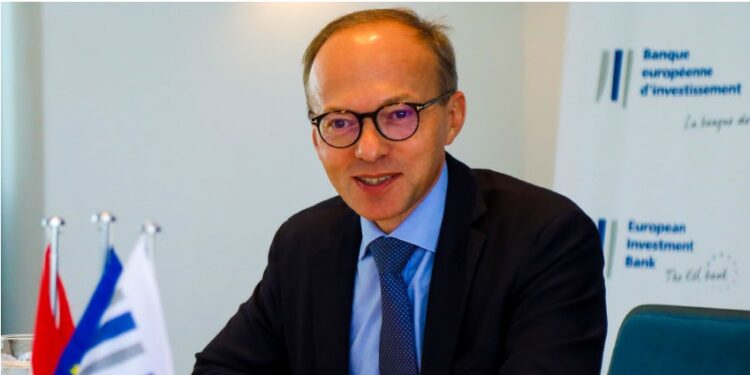In an interview with the TAP agency, Jean-Luc Revereault, representative of the European Investment Bank (BEI) in Tunisia, confirmed the will of its institution to support the country on several strategic fronts. Whether it is a question of strengthening the competitiveness of SMEs, modernizing rail networks or optimizing water and energy management, the BEI says it is ready to finance structuring projects. On one condition: to be officially requested by the Tunisian authorities.
“We are ready to finance, but it is up to the Tunisian government to request these projects,” insists Jean-Luc Revereault.
Energy: sobriety first, then attractiveness
First priority axis for BEI: energy efficiency. Faced with the pressure on resources and high cost of imports, the bank pleads for massive investments in energy sobriety, in the same way as in renewables.
A project is being negotiated with the Tunisian authorities. Objective: to allow the country to save its resources, while improving its attractiveness with energy -friendly investors, such as data centers.
“We too often underestimate gains linked to energy saving, while they are as decisive as production itself,” notes Revereault.
BEI also works on energy infrastructure projects: Tunisia-Italy electrical connection (co-financed by the EU up to € 307 million), modernization of networks, and pumping storage in Tabarka.
Drinking water: limit losses, prioritize sensitive cities
Another critical project: the fight against the loss of drinking water. In collaboration with SONEDE, BEI plans a large program to modernize distribution networks, including the installation of smart meters.
This project is primarily aimed at areas served by desalination plants, where the slightest leak represents a double loss – technical and financial.
Studies are ready, and profitability projections are solid. All that is missing are political activation.
Mobility: Relaunching the rail, opening up the regions
BEI is also engaged in a dialogue with the SNCFT around an abandoned rail line rehabilitation project and improving those in service.
The objective: to strengthen interregional mobility, to streamline the transport of goods, and to support the transition to less polluting modes of transport.
The bank is already participating in the financing of several infrastructures: the RFR, the TGM, the GP13 and RR27 roads … but believes that the rail remains an under-exploited lever for economic recovery.
Tunisian SMEs: support conditioned to competitiveness
If the BEI undertakes up to 170 million euros to support SMEs and businesses of intermediate size, it emphasizes that the main obstacle to their internationalization is not access to financing, but their lack of competitiveness.
A survey carried out within the framework of the “Trade and Competitifness Program” (TCP) program reveals that many Tunisian companies are not prepared for European environmental standards, such as the carbon adjustment mechanism to the borders.
To remedy it, the BEI provides:
- A credit line of € 170 million deployed via local banks;
- A € 8 million warranty line (BH BANK and UBCI) to cover risks;
- A targeted technical support in three key sectors: agriculture, textiles, automobile.
The message is clear: it is up to Tunisia to trigger funding
BEI does not hide its desire to do more. But without political validation, projects will remain pending. And beyond funding, it is the general climate of business which still slows down transformation.
“The journey of the Tunisian business manager is still too complicated. Lightening administrative, tax and logistical constraints becomes essential.








